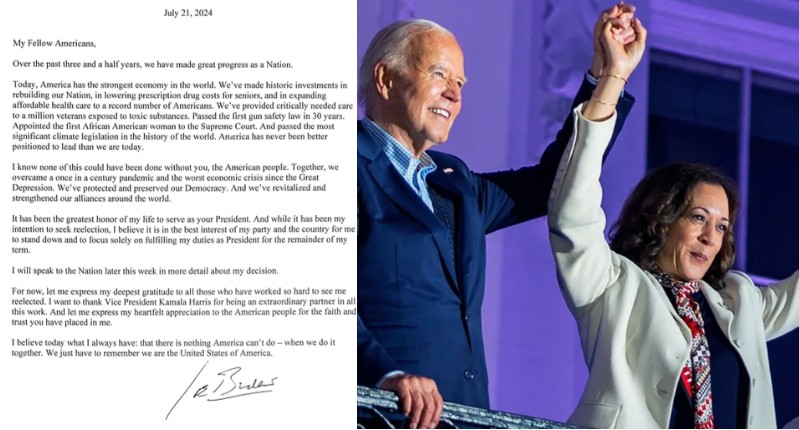Amid escalating tensions in the Middle East, the Biden administration is deliberating on a substantial arms deal with Israel, surpassing $1 billion in value. As reported by The Wall Street Journal, this proposed agreement comes on the heels of Israel’s retaliatory strikes against Iran following a recent drone attack. The prospective deal, which awaits congressional approval, underscores the evolving dynamics in the region and the United States’ commitment to its allies.
The proposed arms package, estimated at $1.3 billion, comprises tank ammunition, military vehicles, and mortar rounds. This potential deal marks the largest single military transaction between the US and Israel since the devastating assault by Hamas on October 7, resulting in the loss of 1,200 lives. Given the gravity of the situation, the sale is anticipated to be executed over an extended period, possibly spanning several years.
Congress Grapples with Foreign Aid Package Amidst Global Uncertainty
Against the backdrop of mounting global challenges, Congress finds itself embroiled in deliberations over a $95 billion foreign aid package, which includes provisions for Ukraine, Israel, and Taiwan. The proposed aid package, essential for bolstering national security interests, underscores the need for strategic alliances and support amid geopolitical volatility.
As lawmakers navigate the intricate landscape of foreign policy, the urgency of addressing escalating tensions in various regions is paramount. The proposed aid package not only signifies the United States’ commitment to its allies but also reflects its proactive stance in promoting stability and security on the global stage. With critical decisions looming on the horizon, bipartisan efforts are underway to secure congressional approval and ensure the effective implementation of vital foreign aid initiatives.
Implications of Proposed Arms Deal and Congressional Priorities
The potential arms deal with Israel holds significant implications for regional security dynamics and US foreign policy objectives. Amidst escalating tensions and evolving security threats, the proposed sale underscores the enduring partnership between the United States and Israel, aimed at bolstering deterrence capabilities and maintaining stability in the Middle East.
Furthermore, as Congress grapples with the allocation of foreign aid amidst competing priorities, the proposed arms deal underscores the delicate balance between addressing immediate security concerns and advancing long-term strategic objectives. With critical decisions on the horizon, bipartisan cooperation remains essential in navigating complex geopolitical challenges and safeguarding national interests in an increasingly volatile global landscape.
Biden: Global Criticism and Domestic Response
The report of the Biden administration’s contemplation of a substantial arms deal with Israel has ignited a wave of criticism, both globally and domestically. Particularly, Washington’s continued military support for Israel amid the conflict in Gaza has drawn significant scrutiny and condemnation. The ongoing Israeli-Palestinian conflict has resulted in substantial civilian casualties, prompting concerns about the humanitarian impact of continued military assistance.
Critics argue that the provision of arms to Israel implicates the supplying countries in potential violations of international law. Several nations, including Canada, Spain, the Netherlands, Japan, and Belgium, have taken steps to impose restrictions or bans on arms sales to Israel in response to these concerns. Additionally, over 200 MPs from various countries have signed a letter urging their governments to halt weapons sales to Israel, citing the country’s alleged violations of international law.
In response to mounting criticism, Israel has sought to reassure the US that any weapons provided would be used in accordance with international law. The State Department has indicated it will assess the credibility of these assurances by early May and report to Congress accordingly. However, the debate surrounding arms sales to Israel underscores the complex ethical and geopolitical considerations involved in such transactions.
Impact on Biden Administration and Diplomatic Relations
The proposed arms deal with Israel has not only sparked criticism but also affected the Biden administration’s domestic standing and diplomatic relations. Reports suggest that President Biden’s approval ratings have suffered a decline, attributed in part to public disapproval of US involvement in the Israeli-Palestinian conflict. This decline underscores the challenges facing the administration in balancing domestic expectations with international obligations and interests.
Moreover, the controversy surrounding the arms deal has the potential to strain diplomatic relations between the US and other nations, particularly those critical of Israel’s actions in Gaza. The Biden administration faces the delicate task of managing these relationships while upholding its commitments to allies and addressing humanitarian concerns. As such, the decision on whether to proceed with the arms deal will likely have far-reaching implications for US foreign policy and its role in the Middle East conflict.
The Biden administration’s consideration of a $1 billion arms deal with Israel has sparked widespread debate and criticism, both domestically and internationally. While the specifics of the deal are yet to be finalized, its potential implications for the ongoing conflict in the Middle East and broader diplomatic relations remain significant. As stakeholders await further developments, the ethical and geopolitical dilemmas surrounding arms sales to conflict zones continue to underscore the complexities of international relations in the 21st century.
Table of Contents
Discover more from OGM News NG
Subscribe to get the latest posts sent to your email.














